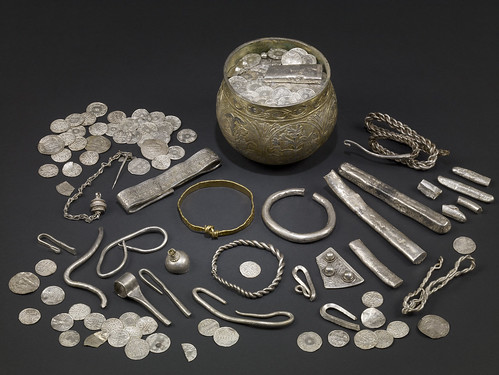
PREV ARTICLE
NEXT ARTICLE
FULL ISSUE
PREV FULL ISSUE
TREASURE LAW IN THE UNITED STATESThe U.S. lacks a universal treasure trove law like the Portable Antiquities Scheme (PAS) in the U.K. A Greysheet article by Armen Vartian summarizes the laws that apply in the various states. A definitive article on the topic was published by John Kleeberg in 2014. -Editor We're familiar with coin finds such as The Saddle Ridge Hoard and the Kentucky Civil War Hoard. The Saddle Ridge coins were found by a couple near a tree on their own property, and the Kentucky coins were found by a metal detectorist on someone else's property. Obviously, these finders were not the people who originally placed the coins there. Why is it that both got to keep the coins and, eventually, sell them? In the U.S., the law relating to "found" items is regulated by each state, but certain principles are consistent. Items are either mislaid, lost, abandoned or "treasure trove". A wallet that falls to the ground out of someone's pocket is mislaid, because the owner never intended for the wallet to be where it was eventually found. A wallet left on the counter at a grocery store is considered lost, because the owner did originally intend for it to be there, but later forgot about it. Abandonment comes from lost or mislaid items where the original owner showed an intent not to return to recover them, and "treasure trove" refers to items of intrinsic value which have been lost or mislaid for such a long period of time that it is no longer possible to identify who put them there. The general principle is that finders of mislaid property have no rights, and the property belongs either to the original owner (referred to by lawyers as the "true owner") if he or she appears, or otherwise to the owner of the premises where the property is found. For lost property, the finder is entitled to possession against anyone but the true owner, and this more or less is true in the case of abandoned property or treasure trove found on one's own property. So the Saddle Ridge finders, who found the coins on their own land, might have had to give up the coins had the "true owner" appeared and made a claim, but nothing like that happened. The coins became theirs. The Kentucky coins presented a more complicated case, because the coins would be considered as abandoned items or, more probably, treasure trove, and the finder found them on land he didn't own. In the past, finders were generally awarded ownership of such items unless a true owner appeared, but in recent years the trend has been to award title to the owner of the property where the find took place. The policy behind this was to not encourage and reward trespassers or hired contractors who scour other people's land but don't tell anyone if they find something valuable.
To read the complete article, see:
To read earlier E-Sylum articles, see:
Wayne Homren, Editor The Numismatic Bibliomania Society is a non-profit organization promoting numismatic literature. See our web site at coinbooks.org. To submit items for publication in The E-Sylum, write to the Editor at this address: whomren@gmail.com To subscribe go to: https://my.binhost.com/lists/listinfo/esylum All Rights Reserved. NBS Home Page Contact the NBS webmaster 
|


